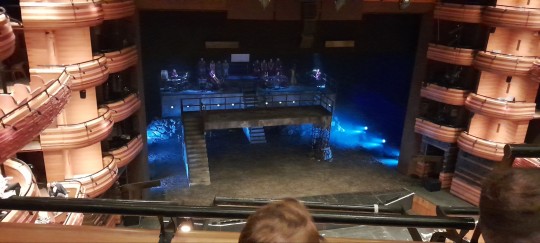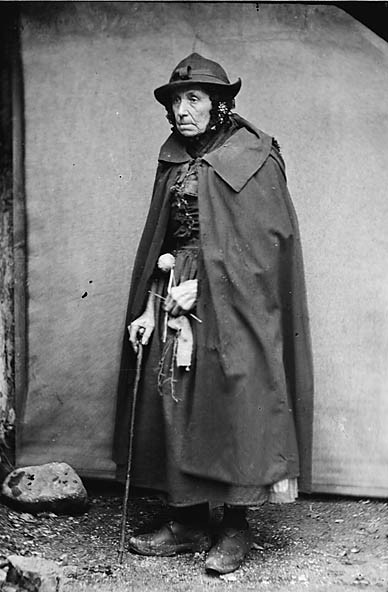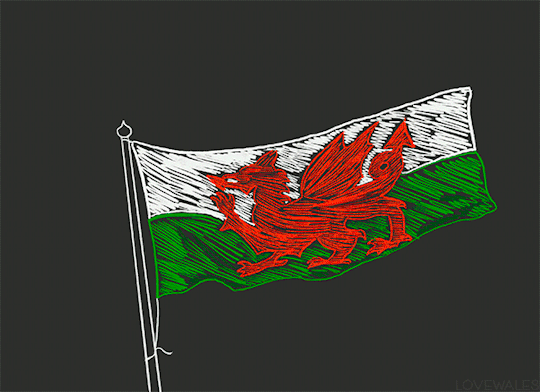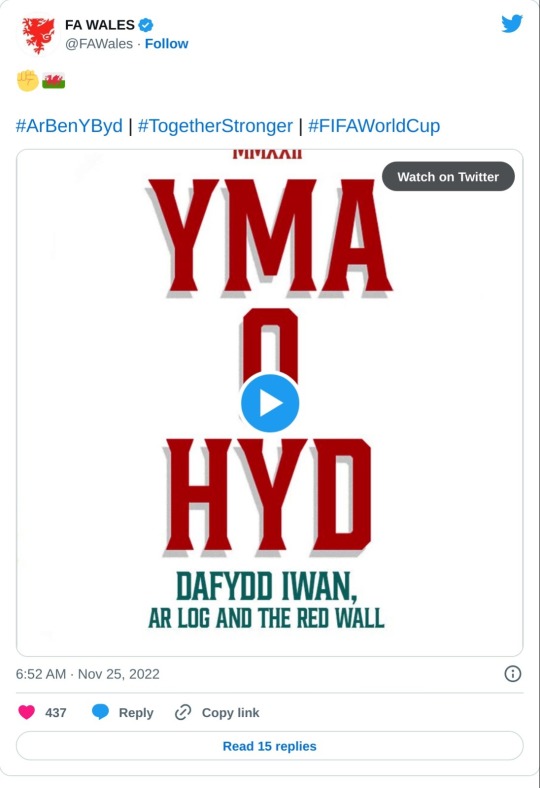#gymraeg
Note
Do you know any free and/or online resources to learn Welsh?
Hello @runin-reads Just getting round to this ask now but there's a few things I know of which might help. Followers feel free to add on any more as well!
Resources:
Free Welsh coursebooks from DysguCymraeg available to download on their website
Free collection of Welsh dictionaries available to view on The Internet Archive
Cysill and Cysgeir are free to download here. Cysill is a Welsh grammar checker that checks for correct spelling, mutations etc. Cysgeir is a Welsh dictionary app. Both were developed by Bangor University and are free to download on Windows.
Gweiadur is a free online Welsh dictionary which not only has a comprehensive guide to Welsh words, but also provides example sentences, idioms and conjugation tables.
Followers add on any more if you can think of any!
#cymraeg#welsh#dysgu cymraeg#ask#gofyn#cwestiwn#gymraeg#language learning#welsh language#yr iaith gymraeg#free language resources#language learning resources#celtic languages
586 notes
·
View notes
Text
Smae, Dwin drio dysgu cymraeg! Dwin bod americaidd ond dwin hoffi yn dysgu hiaith.
Dwin licio hiaith cymraeg, lladin, groeg hen a saesneg hen, almaenwr a sbaeneg. Dw i ddim yn dda iawn yn hiaith, ond dw in licio.
Dw in dysgu lladin a groeg hen, a llyfrau arthuraidd a llyfrau groeg yn yr ysgol. (A chymraeg, ond dwi ddim yn mawr(major?) yn gymraeg)
😄 fi tumblr prif yw some-sort-of-siren
5 notes
·
View notes
Text
Maybe it's how my brain's wired, combined with the language I'm learning, but I'm finding that Duolingo feels much like only half a solution at best.
Like, its okay at teaching stuff that would be on flashcards, but ... very much not so good at teaching the rules behind how things work.
I can join the dots for tegan -> teganau (toy -> toys), but I don't think that it's explained the why behind how bwrdd (table) sometimes becomes fwrdd (table), or dydd becomes ddydd, or bwyta becomes fwyta.
Maybe I'm expecting too much from what is obviously meant to be only part of how you learn, but goddamn it's annoying to get told you were WRONG on an exercise because the word that you learned and used correctly on previous exercises is spelt slightly differently in this one for no easily discernable reason.
I do, thankfully, have a document somewhere that explains the various grammar rules, but I need to try carve out time to sit down and read it and make little reminder cards or something 'til it sinks in.
3 notes
·
View notes
Text
Ynys Môn am byth!
1K notes
·
View notes
Text
Living in Wales where the names Arthur and Morgan originated from (and are very common) is so funny because now I can only think of one guy with those names from now on 😞 so here's some fun facts!
"Arthur" originates from "arto"/"arth" which means bear in Welsh (also said to have originated from the Celtic goddess of bears, Artio), and "Morgan" is a combination of two words - "môr" meaning sea and "cant" meaning circle/hundred, the full name "Morgan" means sea-dweller!
So traditionally, Arthur Morgan's name would be Arthos Môrcant!
#strong believer of welsh-american arthur morgan#don't mind me fellers#does dim ffordd dyw e ddim yn gymraeg#yn onest...#gobeithio y bydd hyn yn ddiddorol i chi!!!#sean pokes fun at arthur calling him english even when arthur said he isn't english#probably just a jab at england being so close to wales and all#arthur morgan#rdr2#red dead redemption 2#red dead redemption community#mick squeaks#<3
117 notes
·
View notes
Text
fucking love the welsh phrase “ych a fi” as an expression of disgust. i dont even know if you can translate it. yuck doesn’t come close to shouting YCH A FIIIIIIII at something you think is gross
39 notes
·
View notes
Text
*also known as Cymraeg, y Gymraeg
reblogs are extremely encouraged to increase sample size. regardless of what choice you picked, feel free to elaborate on your relationship with this language in the tags, and remember to be respectful and mindful when commenting!
39 notes
·
View notes
Text



Category 5 autism moment in Caerdydd tonight as local Mabinogi fangirl explodes at Cymraeg production of Branwen, injuring hundreds
#genuinely getting to hear this story being told and SUNG yn gymraeg got this gal emotional af#and they turned efnisien into a butch assassin woman?#seirol davies your mind#gotta take points off cos no giants tho#i can accept the lack of physical manifestations of the horses and the cauldron cos a play can only do so much#but you couldn't have given bendigeidfran some platform boots?#in what year of the 2100s am i gonna be able to see giants in the mabinogi cmon man#branwen#mabinogi#branwen: dadeni#cymraeg
33 notes
·
View notes
Text
ba mhaith liom Gaeilge a labhairt inniu freisin ach níl mé rómhaith fós 😢
an bhliain seo chugainn, b'fhéidir
#okay but if anyone wants to send me like. super basic asks (in any language) I will do my best to answer them as Gaeilge if I can#or yn y Gymraeg‚ if it's a bit beyond what I can manage with my limited Irish ability and some dictionary/textbook wizardry#it's easy for me to default to Japanese because I have a lot more experience with it‚ but I'd like to use my other languages too :)#(...when i get back up tomorrow‚ it is late and i should. sleep)#gaeilge#irish#language#spyld#speak your language day
9 notes
·
View notes
Text
Dwi'n dechrau deall mwy pam dwi'n gwrando ar y radio yn Gymraeg y dyddiau hyn. Dwi'n gwella yn araf, ond yn bendant. Ro'n i'n gwrando ar BBC Radio Cymru, ar y sioe Rhys Mwyn, cyflwynydd (wrth gwrs) a cerddor bwysig i'r sin roc Gymraeg o'r 80au a 90au.
Heddiw, wnes i ddysgu bod: Oedd Huw Williams, aka Hue Williams/Hue Pooh o'r band Pooh Sticks, y manager i fand Big Leaves am gyfnod. Oedd Huw ar y radio nawr achos ei fand newydd Swansea Sound yn rhyddau sengl newydd am recordiau a siopau record, enw Markin' It Down. Mae band yn cynnwys Huw, Amelia Fletcher (oedd yn y band 'c86' indie, Heavenly, a wnaeth hi ganu gyda Huw ar gyfer Pooh Sticks yn y 90au) a Rob Pursey (yn y band Catenary Wires gyda Amelia yn fwy ddiweddar), ac eu sengl newydd yn ddoniol iawn. Cwsmer mewn siop record yw Huw, a mae fe'n trio bod yn 'cwl' a 'hip' gyda blas miwsig da, yn chwilio am albwm ddiweddaraf Yard Act, ac mae fe'n siarad gyda gweithiwr yn y siop (Amelia) am y recordiau, ac mae hi'n ddweud bod mae recordiau yn y discount bin, mae hi'n 'marking it down to £11'. (Dwi'n gwirfoddoli ar radio cymunedol, so mae Amelia wedi anfon y sengl i fi hefyd eto, ro'n i'n hapus iawn amdano fe!)
Wnes i ddysgu bod 'cyhoedd' yw public, a cyhoeddiad yn announcement, hefyd.
A meddai Rhys, Cadwch yn saff, stay safe!
#meddwl yn Gymraeg#don't take this as the standard of good welsh; I'm just really trying to practise here
10 notes
·
View notes
Text
Dydd Miwsig Cymru Hapus i Chi!
Fel dysgwr, mae gwrando ar gerddoriaeth Gymraeg wedi bod o gymorth mawr i ddysgu seiniau’r iaith.
Dyma un o fy hoff ganeuon Cymraeg:
youtube
Mae croeso i chi ychwanegu eich hoff ganeuon Cymraeg! (Dwi wastad yn chwilio am gerddoriaeth Gymraeg newydd i ychwanegu at fy rhestr chwarae.)
#dwi'n hoffi Al Lewis a Sŵnami hefyd#a'r gân Static Box gan Sywel Nyw ffyyyyyyyc dwi'n caru'r gân yna#dydd miwsig cymru#cerddoriaeth gymraeg#yws gwynedd#if i fucked up any of the welsh please feel free to correct me lol#i've been 'learning' since 2020 but with very little opportunity to practice irl
3 notes
·
View notes
Text
On Cadi as the Welsh equivalent of Queer

(image: screenshot of the entry for Cadi in Geiriadur Prifysgol Cymru)
Some of you may already know this, but for those who don't, Cadi is a Welsh word which is analogous to the word Queer in English. I say analogous, since their meanings aren't quite a 1:1 match. But for shorthand, Welsh equivalent of Queer sums 90% of it up.
It has been suggested tentatively by some to use Cadi as the Welsh translation of Queer. I'm going to explore arguments for and against, but ultimately the choice to use/not use Cadi as a 1:1 with Queer is entirely up to you. Warning that this post is quite long, but I do hope you'll stick with it- please let me know what you think in the notes!
Without further ado, let's get into it:
Definition of Cadi:
Cadi is a term which has existed in Welsh since the 17th Century (roughly) and generally refers to effeminacy in men (real or perceived). Over time, the meaning of the term has expanded to refer to other (Queer) things as well. But the term itself largely has been applied to Queer men and queer masculinities through time.
The term itself derives from the girl's name Catrin and you will come across women who call themselves Cadi as a shortening of their name (like Liz from Elizabeth and so on). In this way, there is a strong point of comparison to be had with the English queer pejorative Nancy, which also derives from a girl's name.
Can Cadi be considered the Welsh equivalent of Queer?
So now to the real meat of the post. Can Cadi be considered the Welsh equivalent of Queer? The answer to that is, unsurprisingly, complicated.
As described above, Cadi is a term which has had strong associations with male effeminacy (real or perceived) and has close parallels to the English term Nancy, which is also nearly exclusively applied to Queer men and masculinities. What this presents is a quandary and I'll explain what I mean by that. But first, we need to outline the history of LGBTQIA+ terminology in general (in the West).
LGBTQIA+ Terminology and the inclination towards cis gay language:
This is a huge huge topic which I cannot possibly do justice to here alone, so I'd highly recommend reading up on these topics when you have time, but for the sake of brevity, here is a tldr on the history of LGBTQIA+ terminology (slightly UK-centric but similar events also happened in the US and Canada, as well as other parts of Europe).
Campaign for Homosexual Equality (CHE) is a British Lesbian and Gay rights organisation founded in the 1960s, during a time of great social and political change. The organisation's membership grew and grew well into the 70s before declining in the 80s. It was during this time that some lesbian members of the organisation left citing erasure of lesbian issues and misogyny in the movement.
CHE and similar gay and lesbian rights movements in this period had been inclined to centre gay men's issues in their activism, which understandably led to many lesbians feeling alienated. Some lesbians left in the late 70s and early 80s and began to form their own advocacy groups. This indirectly fed into a wider feminist upheaval at the time and led to the rise of lesbian feminism, which aimed to centre lesbian issues within feminism, but unfortunately (for complex historical reasons) did then contribute to the proliferation of rad\ical femi\nism within the Queer community, which then unfortunately contributed to the rise of tra\ns exclu\sionary rad\ical fem\inism.
Regardless of the unfortunate rise of transphobia within the lesbian feminist movement, the original catalyst for the formation of these groups was a sense of alienation from the rest of the Queer community because gay men's issues had been prioritised over lesbian issues, when both could have been tackled together, with each other. This alienation was echoed in the names of organisations and events- many early homosexual rights groups only had homosexual or gay in their group names. It took many years before advocacy groups started adding 'and lesbian' to their names and events.
(For further reading, I would suggest watching this video by Verilybitchie about the history of lesbian erasure in homosexual advocacy and how that led to (some) lesbian groups excluding bi and trans people in the same way they were excluded by gay men)
What does that history mean for Cadi?:
Because of a history of lesbian (and by extension, women's) exclusion from homosexual advocacy groups, is Cadi the best term to use as a catch-all given its strong associations with men's expressions of Queerness? (namely, that as a pejorative it is largely aimed at femininity in men and subsequent assumed homosexuality). It is important to consider if using Cadi as an equivalent of Queer would centre a (typically cis) gay experience/expression of Queerness and if that would alienate other members of the LGBTQIA+ community.
However, a counterpoint to this would be that there are variations of the term Cadi which do include other experiences of Queerness:
Cadi ffan (similar to just 'Cadi')- typically used to describe femininity in men and boys [N. Wales]
Cadi genod/ Cadi merched (similar to above) - effeminate man/boy [N. Wales]
Cadi bechgyn - Romping girl, tomboy [N. Wales]
Cati fachgen - (similar to above)- Romping girl, tomboy [S. Wales]
Cadi Haf - Male maypole dancer dressed as a girl
They are, however, somewhat limited for use in reclamation and have to be qualified by another noun to indicate diversion from the original term's meaning.
But when talking about the term Cadi, we often speak in the abstract- without the context in which the term is used. So here are a few extracts from texts which use the term Cadi (or variants). Since this is a mostly spoken slang term, it doesn't turn up in print often, but there are a few examples to draw on.
Examples of Cadi in texts:
Page 164- Cwm Eithin by Hugh Evans (1931):
"DAWNSIO HAF
Ceir darnodiad o'r ddefod hynafol dawnsio haf yn Y Gwyl- fedydd, 1823, tudal. 306, gan un a'i geilw ei hun “ Callestrwr,” fel yr arferid hi yn Callestr (Fflint, mae'n debyg). Ym mis Ebrill arferai o ddwsin i ugain o bobl ieuainc ymuno i baratoi ar gyfer y ddawns. Gwisgai'r dawnswyr eu crysau yn uchaf wedi eu haddurno ag ysnodennau a blodau. Cariai'r arweinydd fforch bren ar lun y llythyren Y. Gwnïid lliain o'r naill fraich i'r llall, ac addurnid y fforch ag amryw lestri arian, tebotiau, llwyau, cigweiniau, efc. Byddai gyda hwy grythor yn ei ddillad ei hun, “cadi” mewn gwisg merch, ac ynfytyn mewn gwisg ryfedd â phlu yn ei ben"
[emphasis mine]
This extract is the author's account of Dawnsio Haf- a Summer dance held on May Day and his investigations into it. At his time of writing (1931) the practice has died out, but later in this chapter he interviews an old woman from the Conwy Valley who participated in the dances as a child. Evans draws upon a source from 1823 for his description of Dawnsio Haf. In it, he mentions that 20 young dancers meet up for the dance wearing shirts decorated with ribbons and flowers. A leader carries a fork in the shape of the letter "Y"- between each point on the "Y" a cloth was strung with silverware dangling from it to make noise. With the 20 dancers would be a crwth-player (crythor), a Cadi in women's clothes and a fool with a feather on his cap and odd clothes.
This usage is quite archaic and refers to a folk dance- much like mumming or morris-dancing. There is however, a picture in the People's Collection Wales titled 'Cadi'r Big' taken by the prolific photographer John Tomas c. 1875, near Y Ro-wen:

Which is very interesting as Cadi'r Big has dried flowers and ribbons attached to their clothes, much like in the description in Cwm Eithin. This is very likely a picture of a "Cadi" from a Dawnsio Haf.
Page 4- Y Ddraig Binc Issue 4 (1994):
Y Ddraig Binc was a Welsh-language Queer magazine published by CYLCH, a gay and lesbian rights organisation based in Aberystwyth. The term Cadi-ffan is included in an article about the commercialisation of Queer identity in the magazine's fourth edition.
"...Nawr te, medd wrtho’i hun, be’ gymera’ i’r mis hwn, copi o GQ ynte Arena neu ydw i, efallai, yn teimlo’n ddigon ifanc a trendi am Sky? Ond aros funud, beth yw hyn? Dau gylchgrawn steil newydd a gwynt digamsyniol cadi-ffan arnyn nhw?
Ydy, mae’r hyn a oedd y tu hwnt i ddychymyg wedi digwydd.
Mae grymoedd y farchnad rydd a chystadleuaeth wedi cyrraedd y byd
cyhoeddi hoyw - rhaid bod Lêdi T wrth ei bodd. Nawr fe gaiff llanc hoyw ddewis o ddeunydd darllen sgleiniog, llawn erthyglau a hysbysebion yn arbennig ar ei gyfer ef a’i rywioldeb. Hwrê! Fedr hynny ddim bod yn beth drwg. Neu a fedr o?..."
[emphasis mine]
This humorous article (dealing with an important topic, mind) pokes fun at the arrival of Queer commercialisation. The article opens by explaining that there's a ruckus in the gay world (and not two old queens getting into fisticuffs)- but that this ruckus is taking place at WHSmith (UK stationery shop and newsagents)- apparent winner of this year's most vulgar uniform award. The author goes on to describe a hypothetical situation in which a gay man walks into a WHSmith to buy a magazine. He wonders whether to get a copy of GQ or Arena (men's style magazines- remember this was published in Section 28 Era so explicitly gay magazines were not common) or is he trendy enough to read Sky? (film and tv magazine). But wait- what's this? Two new style magazines with a whiff of Cadi-ffan about them? The author explains that yes, the unimaginable has happened. The forces of the free market and competition have reached the world of gay publishing.
Now a gay youth has the choice of glossy reading material, full of articles and advertisements especially for him and his sexuality. Hooray! That can't be a bad thing. Or can it? Writes the author. The article is very witty and I recommend a read (find a pdf copy here). But the usage of Cadi-ffan here is very much in a reclaimed sense. Though it must be noted that the story is told through a stereotypical cis gay lens.
Conclusions:
As I said at the start of this post, you are free to claim or not claim Cadi as you wish. However, as awareness of Welsh LGBTQIA+ terminology increases, I wanted to raise important questions and start a conversation about the words we have, what we want them to be and how they have been used against us. I hope in any case that this post has been interesting to you. If it has, please reblog this or add any comments/thoughts in the notes, tags or in my asks.
Beth yw eich barn chi? I'd love to hear other's thoughts on this and start a conversation about it! Diolch am ddarllen
#cymraeg#cwiar#cadi#cadi ffan#Welsh#Gymraeg#yr iaith gymraeg#term reclaiming#hoyw#lhdt#deurywiol#lesbiaidd#cymru#long post
308 notes
·
View notes
Text
dydd gwyl dewi hapus!
in honour of dydd gwyl dewi/st david's day, i wish to share this banger with you all that i used to sing all the time every year! it's called "Mis Mawrth Unwaith Eto" which means "March the first again"
the lyrics are under the cut! (both welsh and english translation with annotations!)

Cymraeg:
"Mis Mawrth unwaith eto*, a'r gwanwyn wedi dod;
Dydd Gwyl Dewi ydw hi.
Mis Mawrth unwaith eto, a'r gwanwyn wedi dod;
Dydd Gwyl Dewi ydw hi.
Dewi Sant, Dewi Sant, cofiwn Dewi,
Cofiwn am y pethau bach a'r pethau mawr**.
Dewi Sant, Dewi Sant, ffrind y bobl, ffrind y plant,
Rhaid i ninnau fod fel Dewi'n dda bob awr***."
English translation: (by me, pls correct me if i'm wrong!)
"March the first is here again*, and spring has come;
It's St. David's Day.
March the first is here again, and spring has come;
It's St. David's Day.
Saint David, Saint David, we remember David,
We remember the little things and the great things**.
Saint David, Saint David, friend of the people, friend of the children,
We should all be good like David all the time***."
*Dydd Gwyl Dewi/St. David's Day is celebrated on March 1st every year!
**This is in reference to Dewi Sant's most famous quote: "Gwenwch y pethau bychain mewn bywyd."/"Do the little things in life."
***Literally 'bob awr' means 'every hour'.
#happy st david's day!#dydd gwyl dewi hapus!#cymraeg#cymru#cymblr#wales#welsh#st david's day#dydd gwyl dewi#welsh music#cerddoriaeth gymraeg#escxelle#elle's interests hyperfixiations and shenanigans#Spotify
3 notes
·
View notes
Text
This so clever- lyrics in Welsh (Cymraeg) and English.
This folk song is so important and beloved! Dafydd Iwan is a Welsh legend and was imprisoned for his activism. But look where we are now, mae’r hen iaith yn fyw, the old language lives!

22 notes
·
View notes
Note
Are you Welsh??
born in wales myself, no, but my family is welsh and immigrated to the US very recently in the last few decades. I was born here (Ohio) but I speak the language and I’m still very active in the politics and the culture and my best friend is in wales currently. I plan to move someday once I get married.
#Ty for the ask! i never get asks#wyt ti'n gymraeg?#dwi’n gwneud i UTAU ganu cymraeg#i should say while i know welsh I don’t speak it with other welsh people very often so I probably sound like i learned it in a classroom#because I essentially did
9 notes
·
View notes
Text
i miss learning welsh, wish i could just get everything right on the first try !!!!!! everything worth doing is difficult >:(
#once i have disposable income i'll actually bite the bullet and oay the £10 per month for that really good welsh course#aaaaaa alla i ddim cofio sut i siarad yn gymraeg#chatter
2 notes
·
View notes